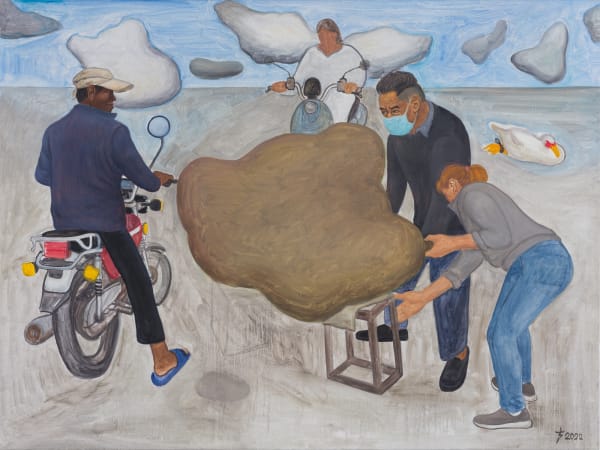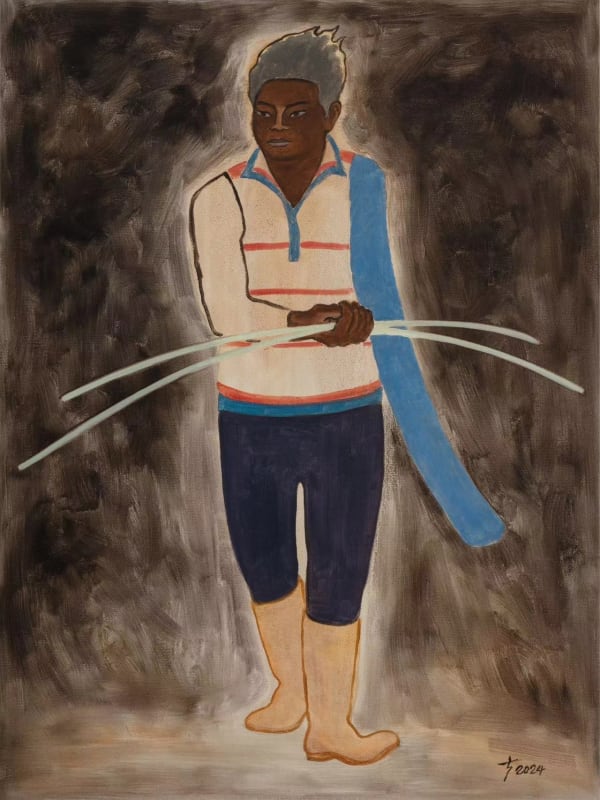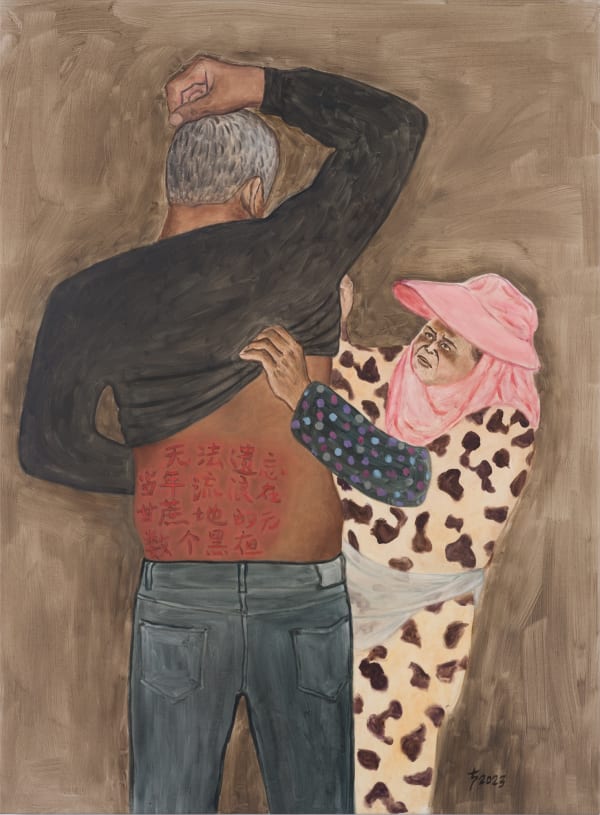-
 Health Center 衛生院, 2023
Health Center 衛生院, 2023 -
 House Warming Party 入伙酒, 2021
House Warming Party 入伙酒, 2021 -
 Impermanent Like Clouds 雲無常 , 2023
Impermanent Like Clouds 雲無常 , 2023 -
 Let it turn to Ashes 讓它化作灰燼, 2022
Let it turn to Ashes 讓它化作灰燼, 2022 -
 Lost in a Cloud 一舊雲, 2022
Lost in a Cloud 一舊雲, 2022 -
 No Feet Washing 無洗腳, 2024
No Feet Washing 無洗腳, 2024 -
 One Armed Woman 獨臂女, 2024
One Armed Woman 獨臂女, 2024 -
 Red Bull 紅牛, 2024
Red Bull 紅牛, 2024 -
 Spring Planting 春種, 2023
Spring Planting 春種, 2023 -
 Sweet Potato Man 番薯佬, 2022
Sweet Potato Man 番薯佬, 2022 -
 The Cold Within 明雪重, 2023
The Cold Within 明雪重, 2023 -
 Weeding 封草, 2023
Weeding 封草, 2023
Liu Sheng grew up in a rural farming village in Suixi County in Zhanjiang, an area stricken by poverty located in the southwest of Guangdong province in China. Liu studied oil painting at the Guangzhou Academy of Fine Arts where he received a bachelor’s degree in 1994. He currently lives in Beipo Village of Suixi County.
Born in 1971, Liu Sheng experienced China’s industrial revolution and the drastic social transformations of rapid urbanization. As the first university graduate and breadwinner of the family, Liu took on jobs in design and manufacturing to lift his family out of poverty, from 1994 to 2014. This survival experience of marginalized people hustling in changing cities, made Liu very different from artists that start practicing professionally straight out of art school.
A migrant worker was Liu Sheng’s identity for two decades, but he never stopped questioning the boundary of art and society. In 2014, he no longer wanted to be a mere observer and started documenting his daily encounters. From 2014 to 2019, Liu Sheng delved into the social landscape of ‘urban villages’ in the Pearl River Delta. Through depicting the state of existence of these migrants, the artist attempts to document how China’s economic revolution transformed the country’s domestic sphere.
Late 2019, Liu Sheng returned to his home village and rented two acres of farmland from his cousin which began his life as a ‘Potato Man’. Liu explores the intimate choices of village families in the face of larger forces of modernization, showing how these negotiations shape the configurations of daily village life — from power structure, communal superstitions, individualism vs collectivism, to resources distribution and inequalities.
Long-durational social practice is not only a way for Liu Sheng to transcend his own observation and perception, to generate artistic expression in the joint relationship with others, but to expose critical issues within existing systems and catalyze social exchange.
-

Liu Sheng
Yit Interviews Liu Sheng January 31, 2025Yit 一条 interviews Liu Sheng on his social practice, life in the countryside, and artistic drives. Liu Sheng is 54 years old, a native of...Read more -

Liu Sheng
ArtReview 2024 Future Greats November 28, 2024Liu Sheng's visual diaries are featured in ArtReview Chinese Edition's Fall 2024 Issue 'Future Greats,' reviewed by Duan Jianyu. I have been paying attention to...Read more -

Liu Sheng & Wang Gongyi
Asia Art Archive Annual Fundraiser October 23, 2024Liu Sheng's Harvesting Sugarcane in Mud (2023) and Wang Gongyi's Leaves of Grass #19 (2024) are included in Asia Art Archive's annual fundraiser. The auction...Read more -

Liu Sheng
Potato Man's Quest - Artist Talk June 17, 2024On 15 June 2024, gdm hosted a conversation at the gallery — Liu Sheng in conversation with his university professor - artist Xu Tan, artist...Read more

















